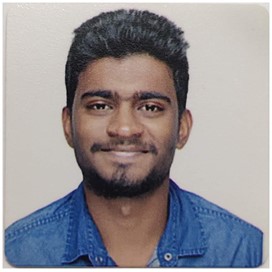Empowering Intersectionality in the Field of Medicine

We all might be divided by race, creed, caste, religion, and many other factors. However, what ultimately remains is that we are all humans. In accordance with the Declaration of Geneva, which was adopted by the World Medical Association at its second General Assembly in 19481, we as physicians should not discriminate against any patients who come to us for treatment based on any bias. I believe the same must be practiced among ourselves, as physicians, too.
As an avid medical aspirant who had dreams of becoming a doctor, I had to pass my entrance exam in order to get into medical school in India. I passed it with a decent score for which I received admission only to private colleges that charged an exorbitant amount of tuition fees. I did not feel comfortable placing this huge financial responsibility on my parents, so I opted to obtain my education overseas. I am currently studying medicine in the Philippines.
When medical school started, apart from studying, I was looking forward to interacting with individuals of different nationalities and feeling a sense of belonging. Unfortunately, this was not my experience because there were so many international students, and we were in separate classes from the domestic students. However, we had great interactions with most of our professors as well as the local population that lived in our neighborhood. Unlike the domestic students, the international students received little individualized attention since there were so many of us. There were a few professors who did make it a point to provide individualized attention to us which made us feel included. Many opportunities were not available to us as foreign students and were mostly reserved for the local students. In many parts of the world, it's common for there to be a natural tendency of favoritism towards the native people. Even though these preferences might exist, embracing diversity and treating others fairly must be emphasized. If each one of us welcomed these principles, the medical field and patient care would be positively impacted.

From 2019 to 2020, I was the president of the International Medical Student Council and am currently the student advisor to the council. During my tenure, I proposed a plan to increase inclusivity with minority and international students. We made a list of festivals and important dates that these students celebrated and made sure we acknowledged them on those days, among other projects. This was an instance where I made a positive difference in celebrating diversity within my medical school.
After completing our course, those of us who are foreign medical students have to pass a licensure exam2 in order to get a license and be eligible to practice in India. Whereas, those who study in Indian Medical colleges itself needn't take any licensure examination as of now. Course completion alone will give them the necessary license required to practice. This is another bias that we face. We agree that each college has its different standards with regards to teaching but filtering only the foreign medical students seems to be an unfair practice. However, there has been a proposal for a new licensure examination for both the local and the foreign medical graduates called the National Exit Test3. As promising as this might seem, the National Medical Commission of India recently released a draft laying out different criteria for foreign medical students such as a stipulated time duration of two years to pass the exam3. Such unjust measures cause foreign medical students to search for better career opportunities in other countries. However, daunting as this may be, my hope in the forthcoming years is that the global medical community recognizes the need for empowering intersectionality and implements it whenever and wherever necessary. By doing so, we work in harmony with each other, be it with our colleagues and our patients.
References:
- WMA Declaration of Geneva – WMA – The World Medical Association. https://www.wma.net/policies-post/wma-declaration-of-geneva/. Accessed June 5, 2021.
- Rakesh, B. Have a foreign degree? Clear screening test first. The Times Of India. https://web.archive.org/web/20110811090717/http://articles.timesofindia.indiatimes.com/2004-11-16/delhi/27165233_1_screening-test-foreign-degree-medical-council. Published November 16, 2004. Accessed June 11, 2021.
- It's time to prepare for the NEXT challenge. Hindustan Times. https://www.hindustantimes.com/brand-stories/it-s-time-to-prepare-for-the-next-challenge/story-AHMoZWFHGFcf3JBzvApIfN.html. Accessed June 11, 2021.

This article was authored by Sibi Krishna Thiyagarajan, a fourth-year medical student at the University of Perpetual Help System Dalta Jonelta Foundation School of Medicine in the Philippines.
This content was developed independently from the content developed for ACC.org. This content was not reviewed by the American College of Cardiology (ACC) for medical accuracy and the content is provided on an "as is" basis. Inclusion on ACC.org does not constitute a guarantee or endorsement by the ACC and ACC makes no warranty that the content is accurate, complete or error-free. The content is not a substitute for personalized medical advice and is not intended to be used as the sole basis for making individualized medical or health-related decisions. Statements or opinions expressed in this content reflect the views of the authors and do not reflect the official policy of ACC.

